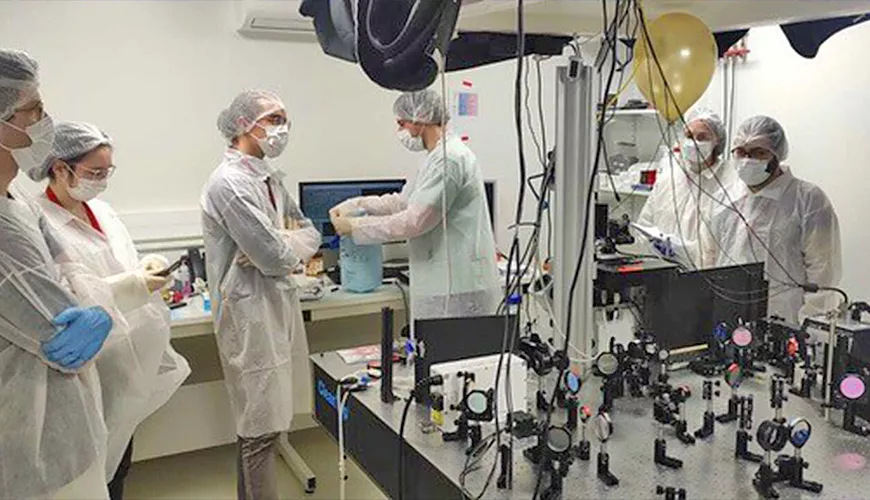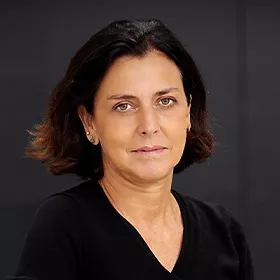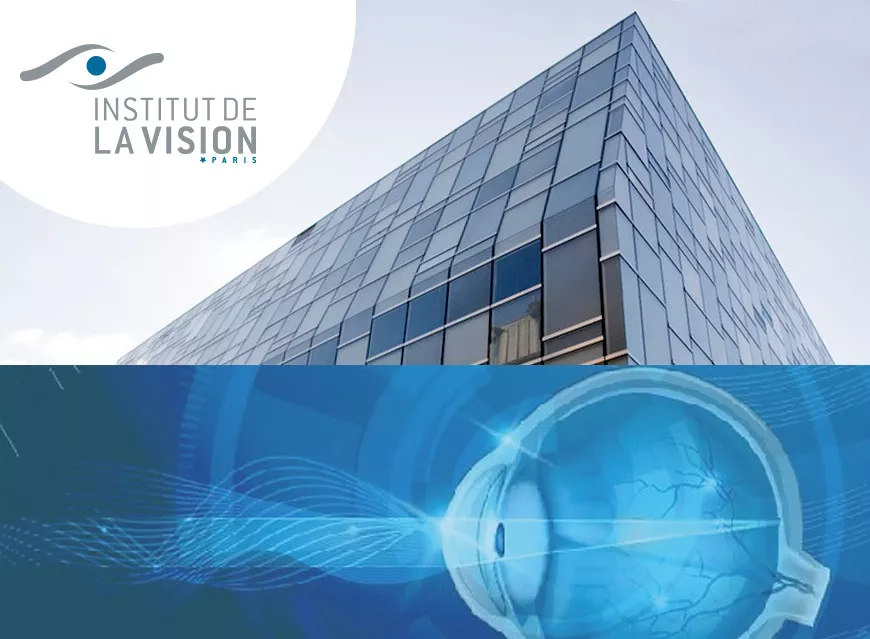Formation
The Institut de la Vision is a conduit for science, whose mission involves training researchers and students, as well as raising public awareness of the challenges of research into vision diseases.
For scientists


— Pr Valentina Emiliani, Institut de la vision
Formation - All-optical Control of Brain Functioning with Optogenetics and Multi-Photon Microscopy
OBJECTIVES
- Learn how to choose the most suitable combination of actuator, illumination methods and targeting strategy for each specific application
- Acquire the skills and technologies required to design and build up an optical system for optical control of neuronal circuits
AUDIENCE
researchers, PhD students or engineers
ORGANISATION
9-18 March 2026 - 8 days, from 09:00 am to 06:00 pm
Training course in English
Institut de la Vision, 17, rue Moreau 75012 Paris, France
TRAINING PROGRAMME
Lectures :
- Introduction to optogenetics
- Wavefront shaping and liquid crystal matrices
- Viral vector design
- Computer generated holography
- Temporal focusing
- Three-dimensional light patterning and temporal focusing
- Two-photon optogenetics: scanning, spiral scanning, parallel illumination: examples
and comparison among the different approaches
- All-optical interrogation of brain circuits
- Voltage and calcium imaging
- 2P Miniscope for two-photon imaging in freely moving mice
- Two-photon all-optical circuits manipulation in freely moving mice
- Patterned voltage and calcium imaging
- Three photon imaging
- Photodamage considerationsPractical courses (in small rotating groups of 5 attendees max with 2 trainers per group)
- How to build up a holographic optical set-up (optical design and software)
- In vitro and in vivo all-optical manipulation of neuronal circuits
- Two-photon all-optical circuits manipulation in freely moving mice
- Two-photon scanless voltage imaging
- Projects from applicants: proposition of projects by the attendees and discussion on their
feasibility
SPEAKERS
Deniz Dalkara (IDV, Paris); Valentina Emiliani (IDV, Paris); Michael Lin (Stanford University, US) ; Dan Oron (Weizmann Institute of Science); Eirini Papagiakoumou (IDV, Paris) ; Emiliano Ronzitti (IDV, Paris); Ruth Sims (IDV, Paris); Francois St Pierre (Baylor College of Medicine); Dimitrii Tanese (IDV, Paris); Johannes Vierock (Charité – Universitätsmedizin Berlin); Claire Wyart (ICM, Paris); Chris Xu (Cornell University, US); Ofer Yizhar (Weizmann Institute of Science); Weijian Zong (Kavli Institute for Systems Neuroscience, Norway)
PEDAGOGICAL METHODS
Lectures (23 h), workshops (28 h) and presentations of projects (8 h). Files in PDF format will be made available to the trainee. Ongoing formative assessments throughout the course. A certificate of completion is issued at the end of the training. Our laboratory is fully accessible for people with reduced mobility (PRM), with dedicated facilities.
TRAINING FEES
2.700 € (including morning welcome coffee, coffee breaks and 2 meals per day)
Registration Details:
People interested to attend the course, should sent a motivation letter and a short CV to Eirini Papagiakoumou (eirini.papagiakoumou@inserm.fr) and Valentina Emiliani (valentina.emiliani@inserm.fr).Selection of candidates will be completed by mid of January.
For students

International Master Of Vision sciences - IMOV
The program puts an emphasis on current fondamental and clinical advances in the multiple field of visual sciences and introduces students to the cutting edge technologies behind the discoveries.
PARTNER UNIVERSITY
University Nacional Autonoma de Mexico - www.unam.mx
Sorbonne university - http://master.bip.sorbonne-universite.fr/fr/planning-des-cours.html
ADMISSION
IMOV also function as a Dual Master with our partner university UNAM so it’s possible to apply to IMOV in the first or second year of Master (M.Sc). This specific status means that any student performing two semester in each institution (Sorbonne University and UNAM) during the two year M.Sc receives two Master degree, one of each university. First year of M.Sc in Sorbonne University is also the Master BIP first year (the course programme here:
the course programme
IMOV PROGRAM
The semesters at UNAM are taught in english and the semesters at Sorbonne University are taught in french.
The choice of semester present in each university is free to the students, at the exception of first semester of second year which is currently not open in UNAM.
For example :
M.Sc first year, first semester, at UNAM:
- Bases of cellular and systemic communications in the nervous system
- Modulation of the transmission mediated by the immune system
- Molecular mechanisms of cell signalling Experimental perspectives for visual sciences
- Experimental perspectives for visual sciences
- Techniques of molecular biology, pharmacology and genetics
- BiostatisticsM.Sc first year, second semester, at UNAM:
- Expression and regulation of genes and proteins
- Functional plasticity in the nervous system
- Nervous system functions and alterations in pathological processes
- InternshipM.Sc second year, first semester at Sorbonne University:
- Vision from retina to primary visual cortex (6ECTS)
- Neurophysiology of perception (6ECTS)
- Physiopathology of sensory diseases and translational research (6ECTS)
- Specialization coursework (6ECTS)
- Developing a research project (6ECTS)- M.Sc second year, second semester at Sorbonne University:
- Master’s thesis (30ECTS)
For patients

Patients' University: Patients partners in visual pathologies
Patient University designs and runs a degree course for people with a disease who want to turn their experience of the disease into expertise for the benefit of the community.
Transforming the experience of visually impaired patients into expertise
The training brings together professionals from the Institut de la Vision, the Hôpital national des 15-20, Sorbonne University and the association Comment Dire. It is organized by Streetlab and trains patients who wish to mobilize their experience to engage as team partners in the care pathway of people affected by visual pathologies.
At the end of the training, participants are able to: mobilize their experience to transform it into expertise; better understand and intervene in the care pathway of other patients; use interview tools to understand the needs of other patients and support tools; communicate and work with and within a team caregivers as patient partners; intervening and communicating from a patient perspective with different audiences and institutions.
Course content
- Understanding care pathways, therapies, research and the needs of patients at every stage
- Knowing the history and contributions of patient partners and sharing experiential knowledge
- Develop interpersonal and technical skills as a patient partner within a team
- Practice using tools to support and to collect the needs of patients and tools for tracing their activity as a patient partner
- Meeting with patient partners about their activities within hospital departments or their public interventions.
Pedagogical method
Mini-presentations, work in small groups, practice training, role-playing, etc.
Duration & delivery modality
52-hour training in the form of 3 sessions of 2 days (42 hours) in face-to-face mode and 10 hours of remote micro-teaching via the Zoom application.
Maximum of 12 participants at Streetlab, 13 rue Moreau, 75012 Paris
Information and registration
To find out the next date of the training, please contact Mrs. Cécilia Coen:
Send an email
